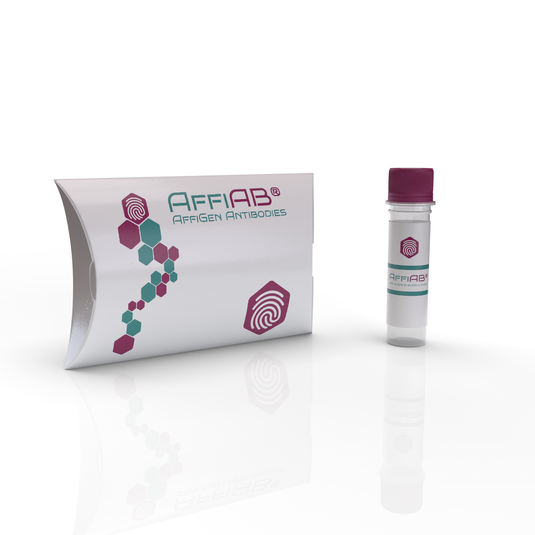Our AffiAB® Goat Anti-Rab10 Polyclonal IgG Antibody is a reliable research reagent for studying Rab10 proteins in various applications. The antibody has high affinity and specificity, allowing for accurate results with the highest sensitivity. It is suitable for Western blotting, ELISA, and other immunocytochemistry methods.
The AffiAB® Goat Anti-Rab10 Polyclonal IgG Antibody is an antibody specifically designed to target and bind to the Rab10 protein. Rab10 is a small GTPase belonging to the Rab family of proteins, which play crucial roles in regulating intracellular vesicle trafficking and membrane dynamics.
This polyclonal antibody is produced by immunizing goats with purified Rab10 protein or a specific peptide sequence derived from Rab10. The resulting antibodies are then purified from goat serum to ensure high specificity and quality.
The AffiAB® Goat Anti-Rab10 Polyclonal IgG Antibody is widely used in research applications to investigate the expression, localization, and function of Rab10 in various cellular processes. By detecting and visualizing Rab10, researchers can explore its involvement in vesicle transport, protein sorting, and membrane remodeling.
Techniques such as immunoblotting, immunofluorescence, immunohistochemistry, and immunoprecipitation are commonly employed to analyze Rab10 protein expression and elucidate its functional roles. The antibody's specificity ensures reliable and accurate detection of Rab10, enabling researchers to study its interactions with other cellular components and its impact on cellular physiology.
It is important to note that the AffiAB® Goat Anti-Rab10 Polyclonal IgG Antibody specifically recognizes Rab10 and may not cross-react with other Rab proteins or related molecules. Researchers should perform validation experiments and include appropriate controls to ensure the antibody's performance and specificity in their specific experimental conditions.
In summary, the AffiAB® Goat Anti-Rab10 Polyclonal IgG Antibody is a valuable tool for studying the expression, localization, and function of the Rab10 protein. By targeting Rab10, researchers can gain insights into its role in intracellular vesicle trafficking and membrane dynamics, contributing to our understanding of cellular processes and disease mechanisms.

